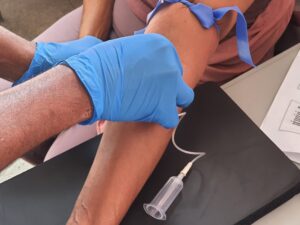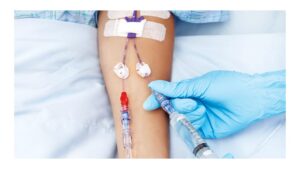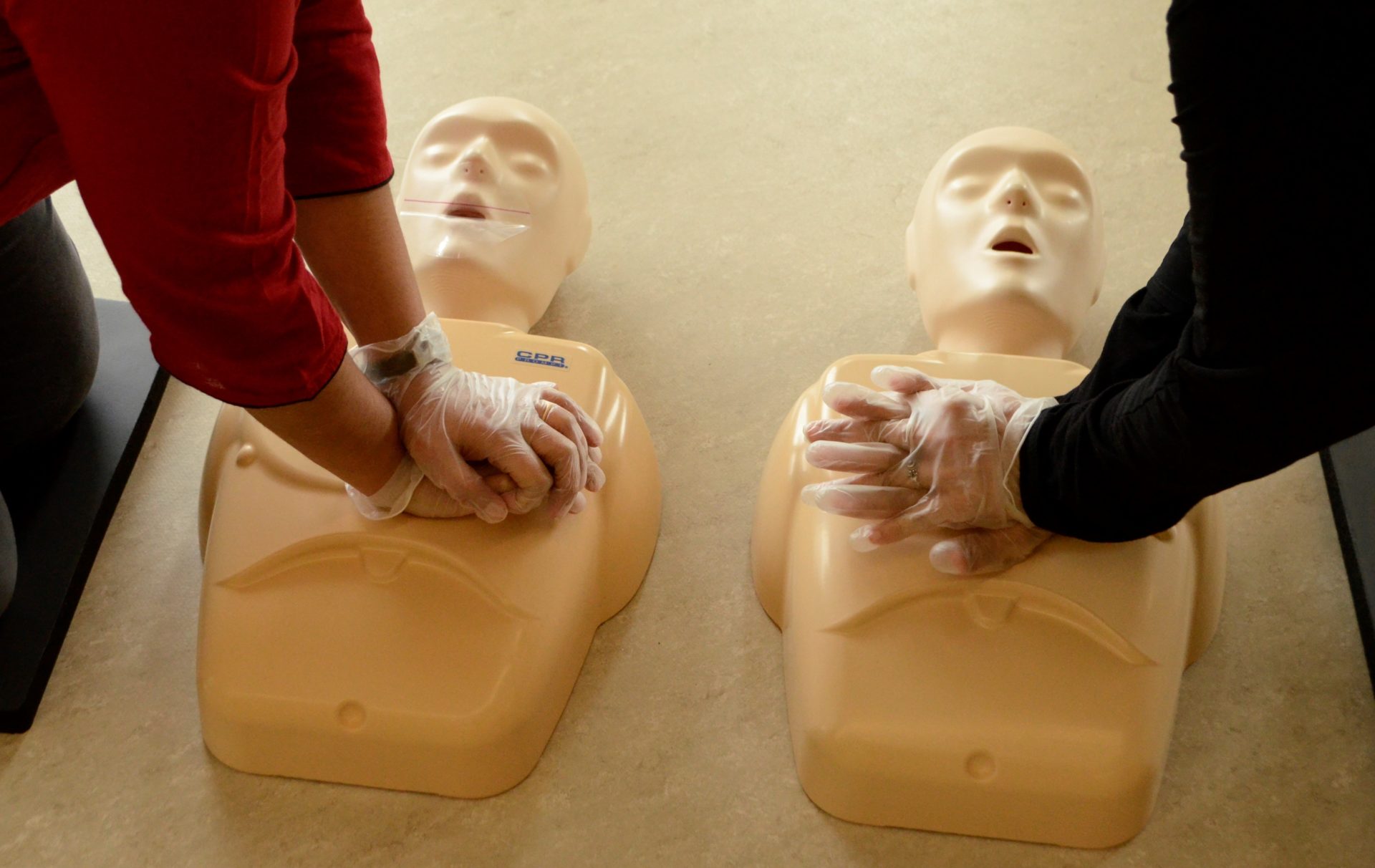E-Learning for Adults
Alpha Life Trainers E -learning offers affordable, flexible online courses you can take now to learn ways to create safety for you, your family, your colleagues, and your clients.
Alpha Life Trainers offers a user-friendly online learning environment with a variety of courses to help fulfill your requirements. Be it a new skill you learn or a certificate you earn, we are there to guide you through.
Our courses are designed by a team of expert instructors with many years of experience working in their respective fields to enable you to learn from the best.
Our online courses give you the flexibility to learn at your convenience by attending the online courses, yet have the freedom to study according to your schedule.
Alpha Life Trainers are here to help you in all aspects of your professional and personal journey of knowledge.
Some Of Our E-Learning Courses
- Must have an education background in medical/health care studies
- Proof of certificates/degrees/diplomas
- Letter from current employer (medical industry)
- and only if currently employed

This general workshop will be of interest to laboratory assistants, phlebotomists, nurses and other health care proffesionals involved in blood specimen collection. Students will develop skills in performing phlebotomy procedures in various healthcare settings.
The continuing education programs are designed to improve or refresh the skills of current health care professionals. Payment to be made in full to reserve your seat and it is non-refundable (some conditions apply)
REGISTER »
HIGHLIGHTED CLINICAL SKILLS:
![]() Fundamentals in blood collection
Fundamentals in blood collection
![]() The paper application of equipment required to perform venipuncture
The paper application of equipment required to perform venipuncture
![]() Problems that may occur during the venipuncture procedure
Problems that may occur during the venipuncture procedure
![]() Correct transport and specimen transport for laboratory testing
Correct transport and specimen transport for laboratory testing
![]() Importance of interpersonal skills
Importance of interpersonal skills
![]() Proper use of equipment
Proper use of equipment
![]() Medical and legal policies and regulations
Medical and legal policies and regulations
![]() Current safety standards
Current safety standards
![]() How to solve common problems
How to solve common problems
This course addresses the fundamental concepts related to caring for clients receiving Intravenous (IV) therapy. Course content will include all IV access lines (central and peripheral sites), IV medication administration and drug interactions, review of necessary equipment, dressing protocols, IV initiation using simulation equipment, client assessment, and appropriate nursing care.
This course includes classroom instruction as well as hands on experience within a simulation lab. The course is suitable for 3rd year last semester Collaborative Nursing Students, 2nd year Practical Nursing Students, or RNs and RPNs who wish to refresh their skills.
Course Overview
-
Detailed discussion of Intravenous system, IV therapy, Venipuncture procedure and equipment
-
Identifying equipment used for IV administration, and venipuncture including IV cannula, start pack, needleless connector, IV extension set, and securement dressing /device Performing venipuncture on a training arm, secure, and dress the site
-
Hands-on Practical training on simulated models of IV administration and techniques
-
Dos and Don'ts in IV procedure
-
Identifying approaches to take to prevent, detect, and minimize complications
-
Document appropriate information in the patient’s record
-
The procedure for discontinuing the Intravenous Infusion

Alpha Life Trainers is proud to offer Intravenous Infusion (IV) training to people from all healthcare backgrounds, hospitals and employed health care professionals aspiring for skills upgrading or as a part of continuous medical education.
Primary Care and Secondary Care of Administration of Subcutaneous Fluids (Hypodermoclysis or Interstitial), is facilitated by registered nurses (RN) with first hand clinical experience, this ½ day theory and practical based course allows participation in theoretical study, bring examples from practice and underpins or further updates knowledge on safe administration of sub-cutaneous fluids in the Primary Care and Secondary Care environment.
Certification Outline
Be aware of holistic review regarding dehydration prevention
Have knowledge of the warning signs of dehydration
Understand when and why subcutaneous fluids might be used
Have knowledge of fluids that can be given safely subcutaneously
Be aware of the procedure of setting up subcutaneous fluids
Demonstrate the monitoring of the infusion site and related documentation
Demonstrate the process of administration

Aimed At:
Registered Health Professionals on the principles and procedures for the safe administration of subcutaneous fluids to adult patients, for the management of symptoms of dehydration. senior carers or nursing assistants may also benefit from the theory and classroom supervision of safe administration of sub-cutaneous fluids.
Introduction:
The purpose of the Medical Terminology course is to provide an introduction to the professional language used by those who are directly and indirectly involved with the art of healing. The course will also introduce those not currently involved in the health care environment to the language of medicine.
In addition, the course will provide participants with the basics of human anatomy and physiology. Course is for those involved in medical billing, medical coding, medical administration, emergency responders, public safety professionals, and those who wish to gain a more thorough understanding of medical terms and/or enhance the knowledge base they already have.
Who Should Take the Course?
Understanding medical terminology is vital when entering a number of medical professions, including medical billing, medical coding, medical administration, emergency responders, public safety professionals, and those who wish to gain a more thorough understanding of medical terms and/or enhance the knowledge base they already have.
Course Objectives:
Upon completion of the Medical Terminology course, the participant will be able to analyze medical terms, correctly spell medical terms, pronounce medical terms and correctly read passages containing medical terms.
Course Overview:
Bloodborne Pathogens is designed for individuals who may be exposed to blood and body fluids during the performance of their work and who wish to gain a more thorough understanding of bloodborne pathogens, the prevention of occupational exposure, and exposure follow-up.
Who Should Take the Course?
This course is designed for individuals who may be exposed to blood and body fluids during the performance of their work including, but not limited to healthcare professionals, emergency responders, public safety workers, laundry and housekeeping workers.
Course Objectives:
The purpose of this course is to provide participants with the basic ability to recognize the hazards associated with occupational exposure to blood and body fluids; be familiar with the steps to prevent exposure to bloodborne pathogens; and to know the steps that should be taken following exposure to blood and body fluids.
Prevention is key for workplace health and safety.
Protecting the safety of employees is essential to ensure they can work effectively. When workers feel confident that they have the skills and knowledge to keep themselves and others safe, they perform better, and are less likely to require absences from work due to illness.
The Red Cross Preventing Disease Transmission (PDT) online course is designed to help organizations meet public health guidelines, and is suitable to all audiences, including those who work in front-line service delivery, retail, community and social services, and those who work with vulnerable populations.
COURSE CONTENT:
This course focuses primarily on understanding how infection occurs and how participants can use personal protective equipment and good prevention of disease transmission practices to reduce their risk of infection:
- How infection occurs and how it is spread
- Proper hand washing techniques
- Personal protective equipment – proper use, removal and disposal
Our online course has been developed with the latest in evidence-based science from World Health Organization, Public Health Authority of Canada, and the Center for Evidence Based Practice with whom the International Red Cross/Red Crescent works closely.
Flexible, No-Contact Course Delivery
The online course can be completed in approximately 40 minutes and is delivered through a self-directed, online learning platform.
- Flexible – employees learn at their own pace and on their own schedule.
- Learner-focused – course content is presented in a way that is accessible and useful, and incorporates a variety of interactive learning activities and video to keep students engaged in learning.
- Electronic records of training – employees receive a completion certificate that they can download or print to share with their employer.
The Preventing Disease Transmission course is also available in virtual and in-person formats facilitated by a Red Cross First Aid Instructor and includes live demonstration using teaching aids and PPE. Ask us for details!
Introduction:
Transportation of Dangerous Goods (TDG) introduces participants to the TDG Act and regulations and explains the requirements for receiving, handling, transporting and shipping dangerous goods, as well as the appropriate response in emergency situations such as spills or accidents. TDG regulations require that, with few exceptions, all persons engaged in the handling, offering for transport or transporting of dangerous goods be trained in the aspects of handling such goods.
Course Objectives:
Ultimately, the goal of this course is to provide participants with the information they need to comply with the TDG Act and regulations. By completing this course, they should know how dangerous goods are classified; understand the regulations pertaining to proper documentation, safety marks, means of containment, forbidden goods, exemptions and special provisions; and know the immediate reporting and procedures to follow in the event of an emergency involving dangerous goods.
Workplace Related
Transportation of Dangerous Goods (TDG)
Transportation of Dangerous Goods (TDG) introduces participants to the TDG Act and regulations and explains the requirements for receiving, handling, transporting and shipping dangerous goods, as well as the appropriate response in emergency situations such as spills or accidents. TDG regulations require that, with few exceptions, all persons engaged in the handling, offering for transport or transporting of dangerous goods be trained in the aspects of handling such goods.
Workplace Hazardous Materials Information System (WHMIS)
Workplace Hazardous Materials Information System (WHMIS) is a hazard communication system designed to ensure workers using hazardous materials, also known as controlled products, have the necessary information to safely handle, store and dispose of these materials. All workers that work with, or in close proximity to, a hazardous material must have WHMIS training. This course meets the legislated worker training requirements for all federal workplaces and for provincial workplaces in all provinces and territories.
Workplace Hazardous Materials Information System (WHMIS) Refresher is a hazard communication system designed to ensure workers using hazardous materials, also known as controlled products, have the necessary information to safely handle, store and dispose of these materials. WHMIS Refresher is designed to refresh the knowledge of workers that have taken WHMIS training in the past and already have a solid understanding of the course material. This course meets the legislated worker training requirements for all federal workplaces and for provincial workplaces in all provinces and territories.
Fire Safety teaches participants the principles of fire prevention and fire safety and identifies appropriate responses in workplace situations involving fire. This course is designed for all employers and workers.
Lockout/Tagout explains the importance of lockout/tagout in protecting the health and safety of workers. Employers should train ALL workers in the basic concepts of hazardous energy control, including energy isolation, locking and tagging of control devices, verifying deenergization, and clearing danger points before re-energizing equipment.
The purpose of the Medical Terminology course is to provide an introduction to the professional language used by those who are directly and indirectly involved with the art of healing. The course will also introduce those not currently involved in the health care environment to the language of medicine.
Bloodborne Pathogens is designed for individuals who may be exposed to blood and body fluids during the performance of their work and who wish to gain a more thorough understanding of bloodborne pathogens, the prevention of occupational exposure, and exposure follow-up.
Phlebotomy Basics and alot of other short courses. Some of them are Actually FREE with certifications. So register today and get your FREE Certification today.




